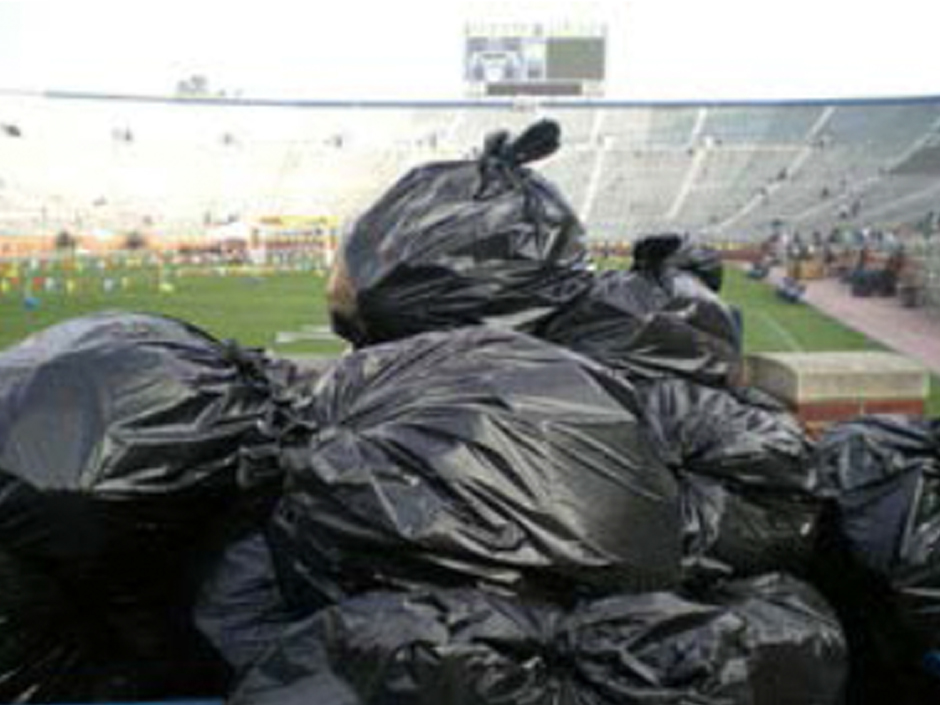Zero Waste Football
ZeroWasteFootball (click PDF)
Fall 2010
Team members: Ashley Badesch, Matt Boegner
The objective of our initiative is to reduce as the amount of waste traveling from Scott Stadium to the landfills by making Scott Stadium “zero‐waste.” In order to do this, all products sold within Scott Stadium must be converted to compostable or recyclable products, eliminating trashcans and diverting virtually all waste produced at the stadium from the landfill. Over the course of this semester, we investigated current waste management practices at UVA, formulated a design and plan for the initiative, and evaluated feasibility and funding for its implementation. We researched a project precedent, Ralphie’s Green Stampede at CU Boulder in order to aid us in achieving an effective design for a zero-°©‐waste football stadium. We then met with community partners in Althetics Facilities and Operations,Uva Dining, and Uva Sustainability in order to understand what steps and challenges accomplishing a zero-°©‐waste stadium would entail. We did online research of Eco-°©‐products and local composting opportunities, and then used the information gathered to formulate a comprehensive funding estimate and to analyze the benefits that could be achieved through our initiative. We have developed a project design that will need further negotiation prior to implementation. We hope to continue meeting with our community partners in order to take action to make actual implementation possible for the fall or for the future.

